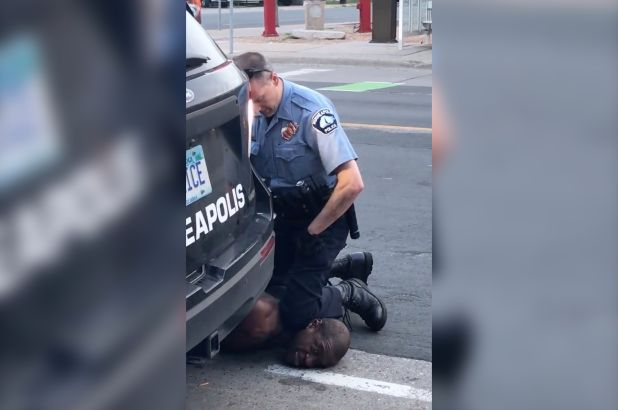Politicians tempted to cross police unions have long feared being labeled soft on crime by the unions, or more serious consequences.
長(zhǎng)期以來(lái),試圖越過(guò)警察工會(huì)的政客一直懼怕被工會(huì)貼上姑息養(yǎng)奸的標(biāo)簽,甚至還有比這更為嚴(yán)重的后果,
When Steve Fletcher, a Minneapolis city councilman and frequent Police Department critic,
經(jīng)常針對(duì)當(dāng)?shù)鼐炀职l(fā)表批判言論的明尼阿波利斯市議員史蒂夫·弗萊徹
sought to divert money away from hiring officers and toward a newly created office of violence prevention,
試圖轉(zhuǎn)移招聘警官的資金,用于建設(shè)新成立的防暴辦公室,
he said, the police stopped responding as quickly to 911 calls placed by his constituents.
那以后,他表示,警方接到他的選民撥打的報(bào)警電話(huà)就會(huì)放慢響應(yīng)速度。
"It operates a little like a protection racket," Mr. Fletcher said of the union.
“那種作派,就跟收保護(hù)費(fèi)(的黑社會(huì))一樣,”弗萊徹在談及警察工會(huì)時(shí)說(shuō)道。
A spokesman for the Minneapolis Police Department said he was unable to comment.
明尼阿波利斯警察局的一名發(fā)言人表示,對(duì)此他無(wú)法置評(píng)。
A few days after prosecutors in Minneapolis charged an officer with murder in the death of George Floyd,
明尼阿波利斯檢察官指控一名警官謀殺喬治·弗洛伊德的幾天后,
the president of the city's police union denounced political leaders,
該市警察工會(huì)主席發(fā)出了譴責(zé)政治領(lǐng)袖的言論,
accusing them of selling out his members and firing four officers without due process.
指責(zé)他們出賣(mài)他的會(huì)員以及未經(jīng)正當(dāng)程序解雇四名警官。
"It is despicable behavior," the union president, Lt. Bob Kroll, wrote in a letter to union members obtained by a local reporter.
“太卑鄙了,”當(dāng)?shù)赜浾攉@取到的,工會(huì)主席鮑勃·克羅爾中尉致工會(huì)成員的信中寫(xiě)道。
He also referred to protesters as a "terrorist movement."
他對(duì)抗議群眾的稱(chēng)呼也是“恐怖主義行為”。
Mr. Kroll, who is himself the subject of at least 29 complaints,
克羅爾本人就曾前后受到過(guò)至少29起投訴,
has also chided the Obama administration for its "oppression of police,"
他曾指責(zé)奧巴馬政府“壓迫警察”,

and praised President Trump as someone who "put the handcuffs on the criminals instead of us."
稱(chēng)贊特朗普總統(tǒng)是“將罪犯而不是我們繩之以法”的人。
In other instances, unions have not resisted reforms outright, but have made them difficult to put in place.
其他時(shí)候,工會(huì)沒(méi)有直接抵制改革,而是選擇了阻撓改革落地。
Federal intervention is often one of the few reliable ways of reforming police departments.
有效改革警察部門(mén)的辦法寥寥無(wú)幾,聯(lián)邦干預(yù)算是其中之一。
But in Cleveland, the union helped slow the adoption of reforms mandated by a federal consent decree,
克利夫蘭工會(huì)就加入了拖延采納聯(lián)邦核準(zhǔn)令強(qiáng)制要求的改革政策的隊(duì)伍,
according to Jonathan Smith, a former U.S. Justice Department official
據(jù)曾負(fù)責(zé)監(jiān)督政府對(duì)克利夫蘭警察公務(wù)行為的調(diào)查的,
who oversaw the government's investigation of policing practices there.
美國(guó)司法部前官員喬納森·史密斯透露。
Mr. Smith said union officials had signaled to rank-and-file officers that the changes should not be taken seriously,
史密斯稱(chēng),工會(huì)領(lǐng)導(dǎo)曾致意普通警官,那些變動(dòng),
such as a requirement that they report and investigate instances in which they pointed a gun.
比如要求他們舉槍時(shí)要報(bào)告、要調(diào)查的要求他們都無(wú)需當(dāng)真。
"I heard this in lots of departments," Mr. Smith said.
“這話(huà)我在很多部門(mén)都聽(tīng)過(guò),”史密斯說(shuō)。
"‘Wait it out. Do the minimum you have to do.'"
“‘就跟它耗,能不勞神就不勞神。’”
He said he believed that the reforms have since taken hold.
他說(shuō),他相信,改革就是從那時(shí)候扎根的。
譯文由可可原創(chuàng),僅供學(xué)習(xí)交流使用,未經(jīng)許可請(qǐng)勿轉(zhuǎn)載。











